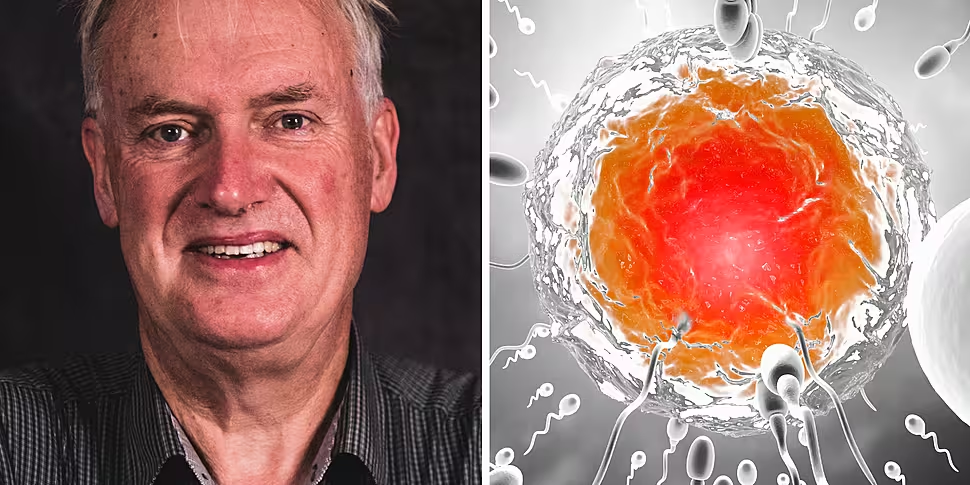Falling fertility is a major problem all over the world and a new study suggests noise pollution could be partly to blame, according to Professor Luke O’Neill.
On The Pat Kenny Show this morning, the Trinity professor noted that male sperm counts are falling dramatically around the world.
The average sperm count has halved in the last 50 years – and that rate of decline has significantly accelerated since the year 2000.
Meanwhile, women’s fertility is also falling with studies warning that, by 2050, some 76% of the world’s countries will have fertility rates below population replacement levels.
A new Danish study published in the BMJ last week has found that air pollution is linked to a higher risk of infertility in men, while prolonged exposure to road traffic noise is associated with a higher infertility risk in women.
“Of course people are worried,” said Professor O’Neill “Will we become infertile?
“There'll be no more children obviously is one concern.
“But this study is fascinating. The question is why? Why is that?
“It could be lots of things, but pollution is one; they reckon it could be pollutants in the atmosphere somehow damaging our sperm.
“The second thing is women, there's also decreasing fertility in women and noise pollution they think might be part of this as well.”
Study
The study examined Denmark’s national registry data for more than 526,000 men and 377,000 women aged 30 to 45 years, with fewer than two children, who were cohabiting or married between 2000 and 2017.
They then checked the yearly average levels of pollutants in the air and road traffic noise at each person’s address.
They then crosschecked that with infertility diagnoses in the national patient register.
After adjusting for a range of potentially influential factors like income, education and occupation, they found that:
- Exposure to higher levels of particulate matter pollution was associated with a 24% increase in the risk of infertility in men aged 30 to 45 years.
- Exposure to higher average levels of road traffic noise over five years was associated with a 14% increase in the risk of infertility among women aged 35 and older.
Exposure to air pollution was not found to be linked to infertility in women.
Meanwhile, road traffic noise did lead to a slight increase in the risk of infertility among men aged 37 to 45 but not among those aged 30 to 37-years-old.
Noise was also not associated with infertility in younger women aged between 30 and 35.
Findings
“The big question is why would noise have this effect on women?” said Prof O’Neill.
“It does activate a thing called the HPA, which is the hypothalamic-pituitary axis, in your brain and that can impact on hormones that control eggs.
“Now this is just a theory but there may be a rationale for the noise affecting this part of your brain, which then impacts on your hormones and affects your eggs.”
The authors of the study argue that their findings should fuel calls for stronger regulation of noise and air pollution in cities.
You can listen back here:









